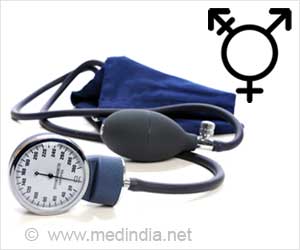FAQs on Gender-Reassignment Surgery: Everything You Need to Know
1. Which healthcare professionals should individuals consult when considering gender reassignment surgery?Individuals considering gender reassignment surgery should consult with experienced healthcare providers specializing in transgender care. This may include gender-affirming surgeons, endocrinologists familiar with hormone therapy for transgender individuals, and mental health professionals who can provide support throughout the transition process.
2. Are there age restrictions for gender reassignment surgery?
Age restrictions for gender reassignment surgery vary by location and healthcare provider. In many cases, individuals must be an adult or have reached a certain age to undergo these procedures, although exceptions may be made in specific circumstances.
3. Is gender reassignment surgery the only option for transitioning?
Gender reassignment surgery is one aspect of transitioning but is not the only option. Many transgender individuals choose to undergo hormone therapy, change their name and gender marker legally, undergo counseling, and make other social and medical transitions without surgery.
4. Can gender reassignment surgery be reversed?
While some procedures, like breast augmentation or reduction, may be reversible to some extent, many aspects of gender reassignment surgery are irreversible. It's essential to carefully consider all options and potential outcomes before undergoing surgery.
5. How long does it take to complete gender reassignment surgery?
The duration of surgery varies depending on the type and complexity of procedures involved, ranging from several hours to a full day or longer.
6. How long do the effects of hormone therapy last before surgery?
Hormone therapy effects can vary, but some changes may occur within weeks to months, while others may take years to fully develop.
7. How long is the recovery period after gender reassignment surgery?
Recovery times vary depending on the type of surgery, but patients typically need several weeks to months for full recovery and should follow post-operative care instructions diligently.
8. Can individuals with Klinefelter syndrome have children?
While many individuals with Klinefelter syndrome are infertile due to low sperm production, some may still father children with the help of assisted reproductive technologies like sperm retrieval and in vitro fertilization (IVF).
9. Are there any celebrity figures who have openly undergone gender reassignment surgery?
Yes, several celebrities have shared their experiences with gender transition and surgery, including Caitlyn Jenner, Laverne Cox, and Chaz Bono.
10. What are the most common misconceptions about gender reassignment surgery?
Misconceptions include beliefs that surgery is a quick fix, that all transgender individuals desire surgery, or that surgery determines one's gender identity.
11. How do cultural attitudes and societal acceptance influence access to gender reassignment surgery?
Cultural attitudes and societal acceptance vary widely, impacting access to healthcare, legal recognition, and support networks for transgender individuals worldwide.
12. Are there any advancements or innovations in gender reassignment surgery techniques?
Yes, advancements include refinements in surgical techniques, minimally invasive procedures, and developments in tissue engineering to improve surgical outcomes and patient satisfaction.
13. What role do advocacy groups and activists play in promoting access to gender reassignment surgery?
Advocacy groups and activists raise awareness, lobby for policy changes, provide resources, and support legal efforts to ensure equitable access to gender-affirming care.
14. How do religious beliefs and cultural norms influence attitudes toward gender reassignment surgery?
Religious and cultural beliefs can impact acceptance of transgender identities and attitudes toward medical interventions, leading to varied levels of support or stigma.
15. Can gender reassignment surgery impact sexual function and fertility?
Surgery may affect sexual function and fertility differently depending on the procedures performed. Patients should discuss potential outcomes and options for preserving fertility with their healthcare providers.
16. Is gender reassignment surgery painful?
Gender reassignment surgery involves various procedures, and while discomfort and soreness are common during the recovery period, pain management techniques are utilized to minimize discomfort.
17. Is gender surgery permanent?
Gender surgery, such as gender-affirming surgeries, is typically considered permanent as it involves irreversible alterations to one's anatomy to align with their gender identity.









